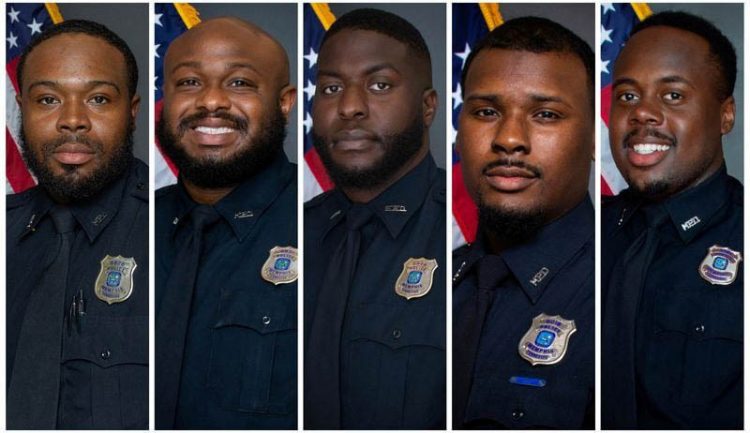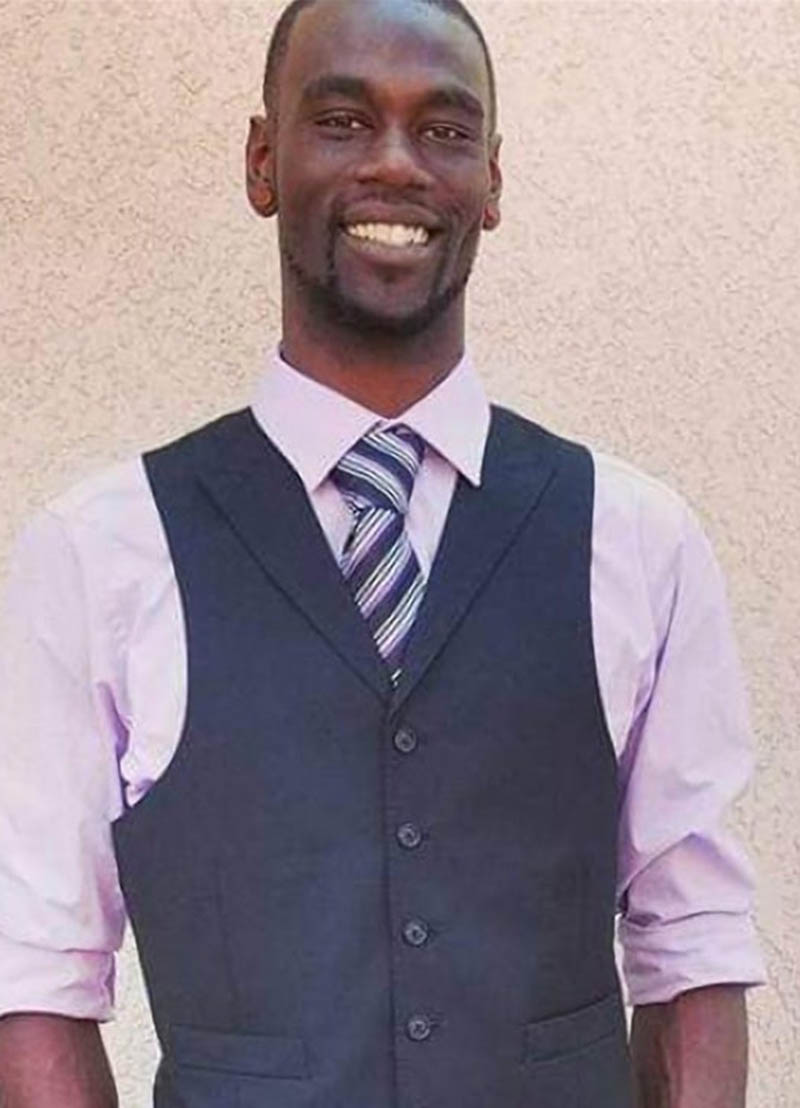MEMPHIS, Tenn., (Reuters) – The city of Memphis released shocking, graphic video footage yesterday of the violent encounter between Tyre Nichols, a 29-year-old Black man, and the five police officers charged with murder in his beating death after a traffic stop earlier this month.
One video clip shows officers dragging Nichols from the driver’s seat of his car as he yells, “Damn, I didn’t do anything … I am just trying to go home,” then force him to the ground as they order him to lay on his stomach and squirt him in the face with pepper spray.
Nichols then breaks free, scrambles to his feet and sprints away down a road with officers chasing him on foot; at least one fires a stun gun at him.

A separate video shows a subsequent struggle after officers catch up with Nichols again, and are beating him. Two officers are seen holding him down as a third one kicks him and a fourth delivers blows with what appears to be a rod before another punches Nichols.
Nichols is heard repeatedly screaming, “Mom! Mom!” as he struggles with officers. His mother has said her son was only about 80 yards (meters) from home when he was beaten. A stretcher is seen arriving 19 minutes after the first emergency medical personnel get to the scene.
The four segments of highly anticipated footage from police body-worn cameras and a camera mounted on a utility pole were posted online a day after the officers were charged with second-degree murder, assault, kidnapping, official misconduct and oppression.
The officers, all Black, had already been dismissed from the police department last Saturday following their Jan. 7 confrontation with Nichols after pulling him over.
He succumbed to his injuries and died three days later while hospitalized.
Memphis police chief Cerelyn Davis and lawyers for Nichols’ family who watched the video with his relatives before it was released, warned that the images were brutal and likely to cause outrage, while appealing to the public for calm.
“You are going to see acts that defy humanity,” Davis told CNN in describing the footage.
As the video first appeared and was being aired on CNN and other news outlets, television images showed a large group of protesters gathering in Memphis, shouting, “no justice, no peace” and carrying signs that said “The people demand: End Police Terror.” The demonstrators appeared to be blocking traffic at one point on Interstate 55.
Civil rights attorney Ben Crump, representing Nichols’ family, called earlier in the day for the city police department to disband its SCORPIONS unit, a squad that is supposed to focus on violent street crime and to which at least some of the officers involved were assigned.
“No mother should go through what I am going through right now, no mother, to lose their child to the violent way that I lost my child,” Tyre Nichols’ mother, RowVaughn Wells, said on Friday.
U.S. President Joe Biden said he was “outraged” and “deeply pained” after watching the Memphis video.
The footage was likely to transform Nichols, the father of a 4-year-old described as an affable, accomplished skateboarder who recently enrolled in a photography class, into the next face of the U.S. racial justice movement.
Raised in Sacramento, California, Nichols moved before the coronavirus pandemic to the Memphis area, where he lived with his mother and stepfather and worked at FedEx, taking a break each day to come home for a meal prepared by his mother.
Nichols’ family and President Joe Biden have appealed for protests to stay peaceful in Memphis, a city of 628,000 where nearly 65% of residents are Black. Schools were scheduled to close early and Saturday morning events were canceled.
Biden spoke with RowVaughn Wells and Rodney Wells, Nichols’ stepfather, on Friday afternoon to express his condolences, the White House said, adding that it was coordinating with relevant government agencies in case protests turn violent.
Nichols’ death marked the latest high-profile instance of police officers accused of using excessive force in the deaths of Black people and other minorities in recent years. These have been publicly condemned as systemic racism in the U.S. criminal justice system.
Protests under the banner of the “Black Lives Matter” movement against racial injustice erupted globally following the May 2020 murder of George Floyd, a Black man who died after a white Minneapolis police officer knelt on his neck for more than nine minutes.
Antonio Romanucci, another lawyer for Nichols’ family, told National Public Radio in an interview on Friday that Nichols was a strong supporter of the Black Lives Matter movement and “basically died for his own cause.”
U.S. Attorney General Merrick Garland on Friday announced a federal civil rights investigation into Nichols’ death, while law enforcement agencies in some major cities, including New York, Atlanta and Washington, said they were preparing for possible protests following the video’s release.
Police have described the circumstances of Nichols’ arrest in vague terms. Even Shelby County District Attorney Steve Mulroy, who sought the officers’ indictment, was circumspect when announcing the charges.
After Nichols was pulled over for reckless driving, “an altercation” ensued in which officers doused him with pepper spray, and Nichols tried to flee on foot, Mulroy said. “There was another altercation at a nearby location at which the serious injuries were experienced by Mr. Nichols.”
Davis said her department has not yet been able determine whether there was probable cause for the officers to pull Nichols over for reckless driving, a traffic stop which set in motion the violent events that followed.
Crump said the speed at which the criminal charges were brought against the officers – fewer than three weeks after Nichols’ death – should be a standard for police-involved killings.
In some other high-profile cases, such as the police killing of Laquan McDonald in Chicago in 2014, more than a year elapsed before the release of police video and the filing of charges.
Crump compared the encounter to the 1991 videotaped beating of Black motorist Rodney King by four police officers whose subsequent acquittal of criminal charges sparked days of riots in Los Angeles.
Records show Justin Smith, Desmond Mills Jr., Emmitt Martin III, Demetrius Haley and Tadarrius Bean, who were fired along with one other officer after Nichols’ death, were released on bond after they were booked into the Shelby County Jail on Thursday morning.





